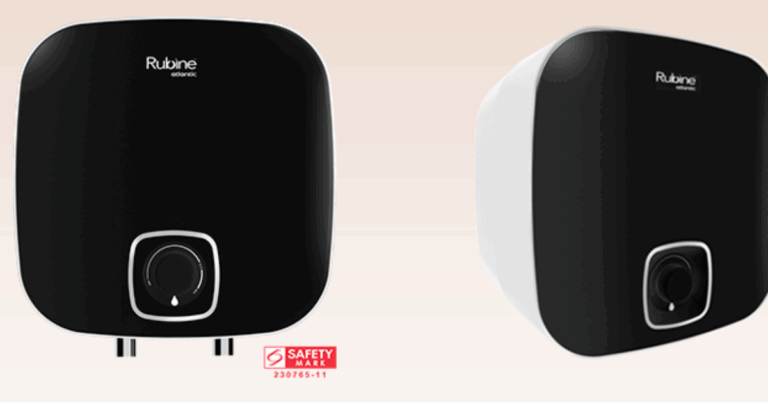Exploring the Best CRM Software for Schools: A Complete Guide
In the fast-evolving educational landscape, managing student data, communications, and admissions manually is no longer practical. Schools are now turning to digital solutions to streamline their operations, improve engagement, and enhance administrative efficiency. One such solution that’s rapidly gaining traction is CRM software for schools.
Designed to manage and automate school-related interactions with students, parents, and faculty, the Best CRM Software For Schools serves as an all-in-one platform for communication, enrollment tracking, performance analytics, and more. In this article, we’ll explore what makes a school CRM great, the core features to look for, and how the right solution can transform how your school operates.
What is CRM Software for Schools?
CRM stands for Customer Relationship Management, but in the education sector, the term often refers to School Relationship Management—a specialized system tailored to manage the entire student lifecycle, from inquiry to enrollment, through to alumni engagement.
Unlike generic CRM platforms built for businesses, school-focused CRMs are equipped with tools to address the unique administrative and engagement needs of educational institutions.
Why Schools Need CRM Software
Enhanced Student Engagement
With personalized messaging, reminders, and timely communication, CRM software helps schools engage better with students and their families. It ensures no lead or communication is lost during the admissions cycle.
Simplified Admissions Process
From application forms and interview scheduling to offer letters and onboarding, school CRM software streamlines the admissions process with automated workflows and centralized data management.
Centralized Data Management
All student records, communication history, academic details, and performance reports are stored in one secure place, making data retrieval quick and hassle-free.
Improved Parent Communication
CRM systems enable schools to keep parents in the loop through email and SMS updates, newsletters, fee reminders, progress reports, and event notifications.
Operational Efficiency
School CRMs automate repetitive administrative tasks, saving valuable time for staff and reducing human error. This allows faculty to focus more on teaching and student development.
Core Features of the Best CRM Software for Schools
1. Lead and Inquiry Management
Track all student inquiries from various channels such as websites, phone calls, walk-ins, and social media. The CRM automatically assigns leads to counselors and sets follow-up tasks to ensure timely communication.
2. Admissions Workflow Automation
Schools can set up automated workflows for application reviews, document verification, interview scheduling, and enrollment confirmations. This ensures no step is missed during the process.
3. Customizable Forms and Portals
Create custom forms for inquiries, registration, and feedback. Some CRMs also offer dedicated portals for parents and students to manage their profiles, download documents, and track application statuses.
4. Multi-Channel Communication
Reach parents and students through emails, SMS, voice calls, or even WhatsApp, all from within the CRM platform. Automate reminders for appointments, payments, or school events.
5. Reporting and Analytics
Track campaign performance, admissions statistics, lead conversion rates, counselor efficiency, and parent engagement through intuitive dashboards and detailed reports.
6. Integration Capabilities
The best school CRMs integrate seamlessly with Student Information Systems (SIS), Learning Management Systems (LMS), and accounting software to provide a unified experience.
7. User Access Control
Role-based access ensures that only authorized users can view or modify certain data. Teachers, administrative staff, and counselors can each have tailored views and access.
Benefits of Using CRM in a School Environment
Personalized Student Experience
By using data to understand student interests and preferences, schools can offer personalized learning paths and engagement strategies.
Better Enrollment Management
From nurturing prospective students to tracking conversions, CRM systems provide clear insights and help boost enrollment rates.
Stronger School Reputation
By delivering timely and professional communication, schools build stronger trust with parents and students, enhancing their reputation in the community.
Real-Time Access to Data
Administrators can view reports and updates from any device at any time, allowing for quick decisions and timely interventions.
Who Should Use School CRM Software?
School CRM platforms are suitable for:
K-12 schools
Private institutions
International schools
Online learning platforms
Educational groups with multiple branches
Vocational and skill development centers
Regardless of the size or location, any institution looking to modernize its operations and improve communication can benefit from CRM implementation.
How to Choose the Best CRM Software for Schools
With so many options available, it’s crucial to choose a CRM that matches your institution’s needs. Consider the following factors:
1. Customization
Your CRM should allow you to modify forms, workflows, and fields to suit your school’s specific processes.
2. User-Friendliness
Look for intuitive navigation, a clean interface, and minimal learning curve so that teachers and administrators can use it effectively.
3. Mobile Compatibility
A mobile-friendly CRM allows staff to access important information on-the-go, improving responsiveness and flexibility.
4. Technical Support
Opt for a provider that offers dedicated onboarding, live support, and continuous updates to ensure the system evolves with your school’s needs.
5. Data Security
Ensure the CRM is compliant with data protection regulations and uses encryption, backup protocols, and access controls to keep student data secure.
Real-Life Impact of CRM in Schools
Many schools using CRM software have reported:
A 30–50% increase in enrollment conversion rates
40% time savings in administrative tasks
Improved parent satisfaction through timely updates and transparent communication
Enhanced student engagement and reduced dropout rates
The right CRM not only enhances operational performance but also contributes to long-term institutional success.
FAQs About CRM Software for Schools
What is CRM software used for in schools?
CRM software in schools is used to manage admissions, student and parent communication, performance tracking, and administrative workflows, all from a single platform.
How is a school CRM different from a business CRM?
While both systems manage relationships, school CRMs are specifically designed for educational workflows such as student admissions, progress tracking, event communication, and parent interactions.
Can school CRMs integrate with existing platforms?
Yes, modern CRM solutions can integrate with Student Information Systems (SIS), Learning Management Systems (LMS), payment gateways, and email/SMS platforms.
Is CRM software suitable for small schools?
Absolutely. CRM systems are scalable and can be customized to fit the size and specific needs of small, medium, or large institutions.
How much does school CRM software cost?
Pricing varies depending on features, customization, and number of users. Most providers offer flexible plans or subscriptions based on the size of the school.
Will staff need training to use a CRM?
Most CRM providers offer onboarding and training. Additionally, intuitive user interfaces minimize the learning curve for staff and faculty members.
Conclusion
The modern school requires modern solutions. Implementing the best CRM software for schools is not just about improving operational efficiency—it’s about transforming the entire educational experience for students, parents, and faculty alike.
With features such as automated admissions, multi-channel communication, and real-time analytics, school CRMs have become indispensable tools in the digital era of education. By investing in the right CRM, your institution can stay competitive, connected, and future-ready.







